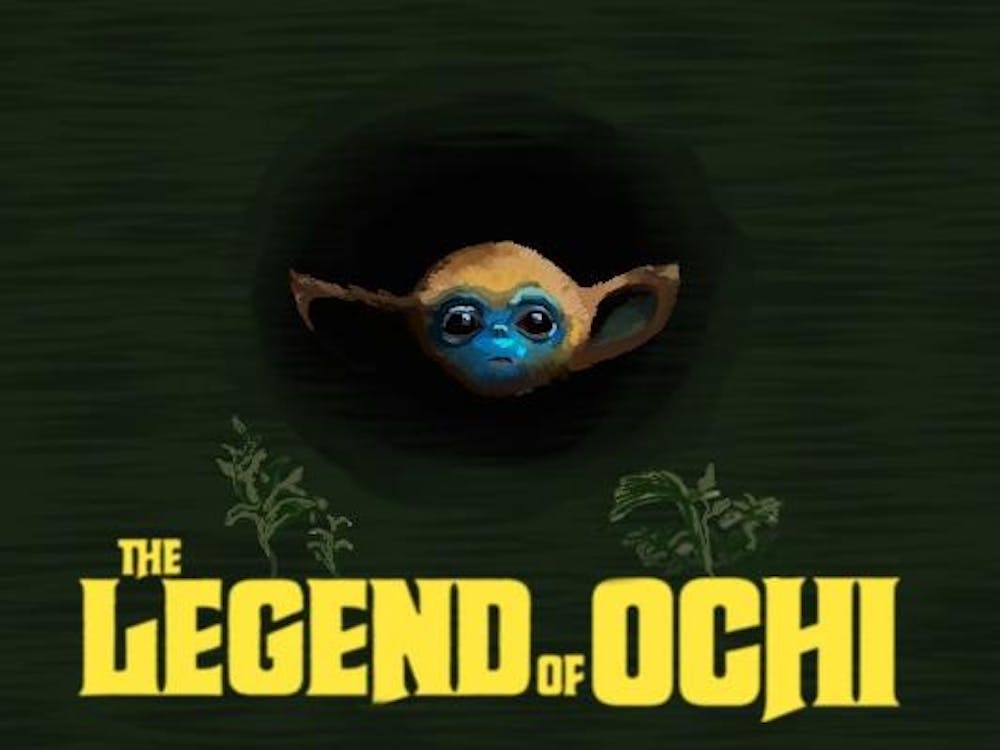Chandler Ferrebee, assistant programmer and communications manager of the Virginia Film Festival, briefly introduced the film “Waves,” Thursday night, which had premiered earlier this fall at the Telluride Film Festival. Written and directed by Trey Edward Shults, “Waves” is a musical, visceral portrayal of life’s small and large devastations that often coincide with happiness and intense feelings of love.
The score begins as the first scene of “Waves” fades in at a low angle behind a young girl coasting on a bike through a sunlit street. She towers over the viewer. The light pouring down through the tropical-looking trees produces a gorgeous, dreamy effect — this world is a combination of whites, pinks, greens and yellows. There’s a fade-out to darkness and immediately, the camera cuts to the interior of a car that is so brightly lit by sunlight reflecting off the bleached road and ocean that the eyes of the viewer are seared. The camera rapidly spins in a 360-degree tracking shot showing two teenagers screaming more than singing a song blaring through the car speakers.
Music, low angle shots, extreme close-ups, dizzying tracking shots and vivid colors keep the viewer paradoxically disoriented and yet completely engrossed with every conversation and expression the characters of “Waves” experience. No moment captured is unnecessary, no time is wasted — the viewer is inserted into the interiority of these characters and is never, at any point during the film, released.
The first hour of “Waves” follows Tyler, played by Kelvin Harrison Jr, who is a high school wrestler. Although there are definite signifiers that Tyler’s father Ronald (Sterling K. Brown) is overbearing when it comes to Tyler’s athletic career, Tyler and his family seem to be reasonably close and Tyler is living the average life of any work hard, play hard popular guy. Tyler’s girlfriend Alexis (Alexa Demie) is in his phone contacts as “Goddess” and the two appear to be experiencing the height of puppy love while Tyler’s wrestling career thrives.
The first hint that Tyler’s life is not going as well as it might seem is when Tyler steals some of the Oxycodone that his dad is taking for a knee injury. From here, things begin to spiral. Tyler is first told by his doctor that he has a SLAP tear in his arm that requires surgery and will indefinitely prohibit him from wrestling competitively. Later, Alexis informs him that she is pregnant. After leaving the abortion clinic without having gotten the abortion and telling him that she might want to keep the baby, the two get into a vitriolic fight that marks the end of their relationship and is jarring to witness.
As Tyler’s pent up frustrations and anger fester, Shults’ camerawork builds tension and anxiety in the viewer, who is aware that something unexpected and horrible is about to occur. While his erratic behavior draws the concerned notice of his father and stepmother Catharine (Renée Elise Goldsberry), all of Tyler’s emotions are internalized — only verbally recognized through an ingenious soundtrack.
The closest Tyler gets to telling anyone what is going on with him is during a heartbreaking scene in which his younger sister Emily (Taylor Russell) cares for him while he is sick from ingesting too many drugs and alcohol. As she holds his head while he sobs and clings to her, he simply says, “It’s been a bad night.”
Wholly shocking and disturbing — for most, unforgivable — is the only way to describe the event that marks Tyler having reached his lowest point. While immersive, the film is still extremely cinematic in the story build-up and examination of Tyler’s interior life — the viewer feels this character’s pain and understands where his anger and fear are coming from. So, when Tyler commits this debased act, it sparks feelings of horror — both at what he did and for him.
This is precisely the most disconcerting and genius element of the film. Tyler’s crime is a story that one reads about and hears on the news every single day. However, whereas typically these news stories inspire sentiments of one having to be a monster and being pure evil to even be capable of committing this type of act, the viewer of the film understands this character in a certain way that evokes empathy — the viewer feels his family’s devastation.
While the first half of “Waves” demonstrates the mania of joy cut by frustration and pain, the second half focuses on the fallout and slow recovery from Tyler’s crime by examining Emily’s interiority and her perspective on how her parents and other people have been affected. The viewer follows Emily as she emerges from her semi-self-imposed isolation by entering into a sweet first relationship with Luke (Lucas Hedges) and she develops a will to move forward and preserve her relationship with her parents. It is through Emily that one can perceive the reality that people can feel both joy and pain, love and hatred at the same time.
For a film that begins by closely following a male viewpoint and masculine inner life, this movie does an admirable job at recognizing the realistic theme of the female taking on male pain. Although the youngest character featured in the film, Emily takes on the pain of her brother, her father and her boyfriend. It is also heartwrenching to watch her observe other women in her life — Catharine and Alexis — take over the responsibilities that their male partners’ have forsaken while also fielding accusations of not being adequately accessible to them and their pain. However, despite feeling engulfed by the grief of so many, Emily is eventually able to achieve what most people wish they had the strength to. She recognizes her own pain and seeks to heal through acknowledging the pain of others and offers her love to them so that they may begin to heal as well.







